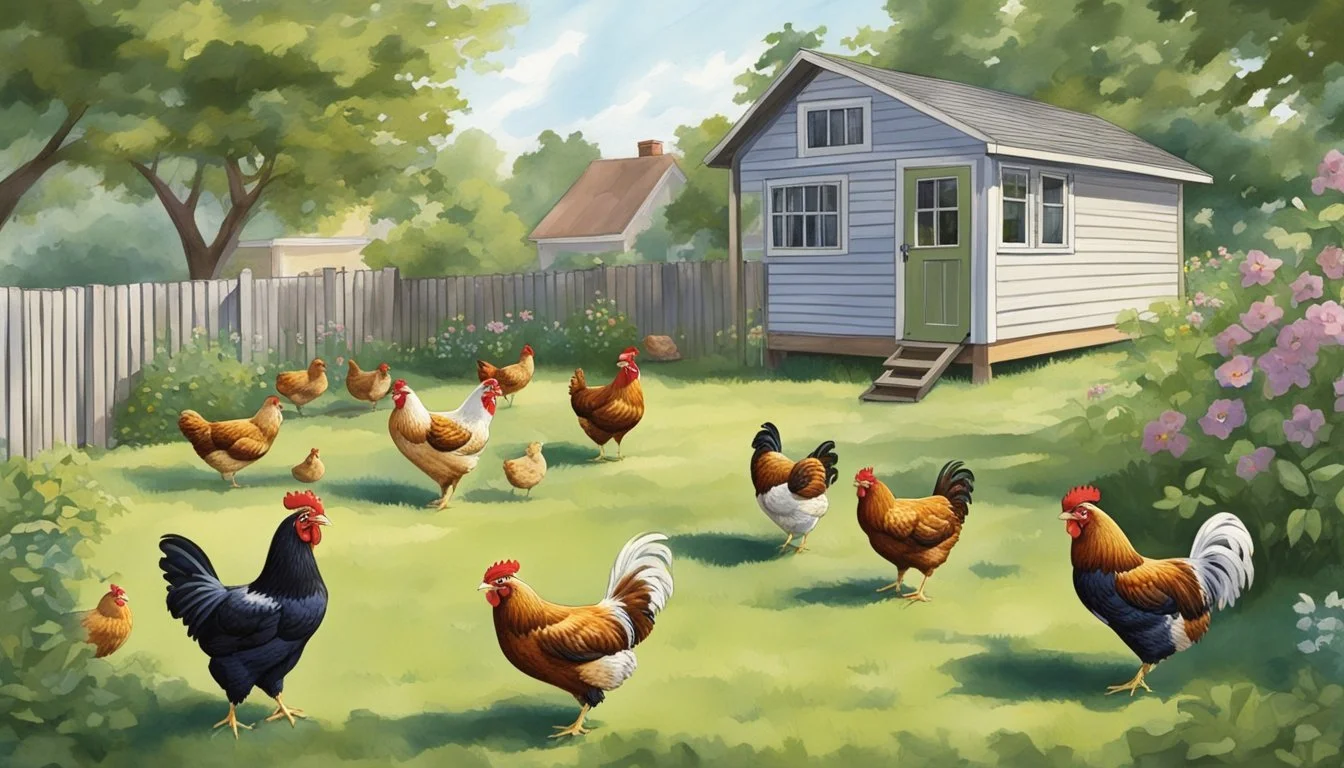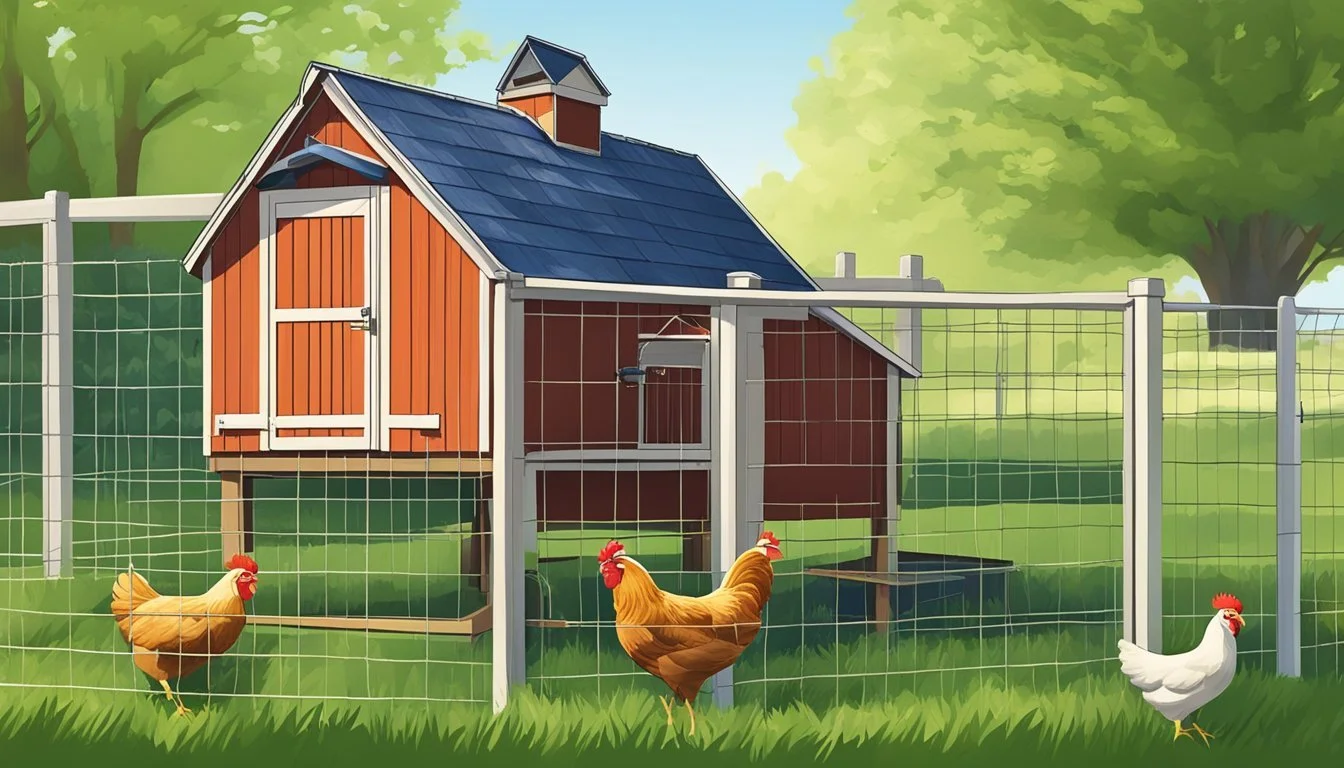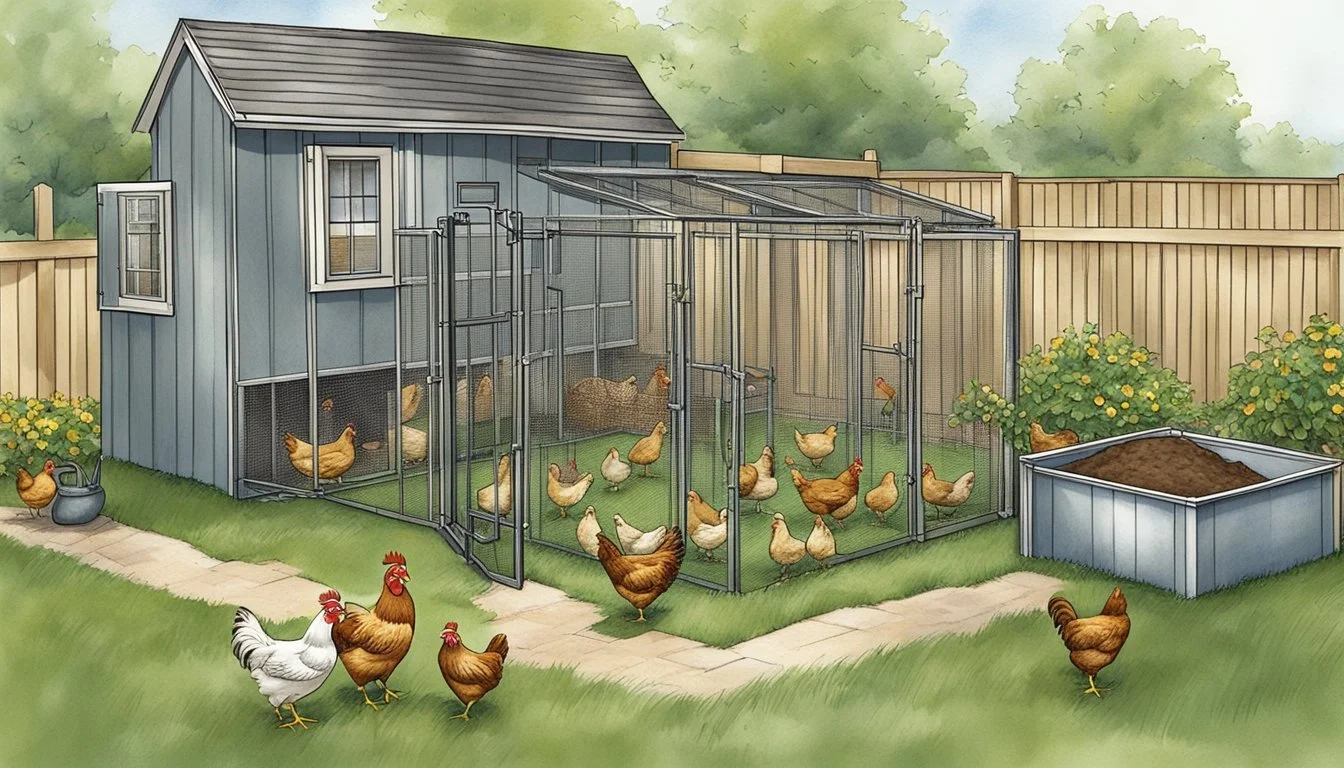Keeping Backyard Chickens in Omaha, NE
Essential Guidelines and Tips
Backyard chicken keeping has become an increasingly popular practice among residents in urban and suburban settings. In Omaha, Nebraska, this trend continues to grow as individuals seek the rewards of fresh eggs and the pleasures of caring for chickens. The City of Omaha permits the keeping of chickens under specific conditions, catering to animal welfare and maintaining neighborhood harmony.
Residents of Omaha are allowed to keep up to six hens in their backyards, providing an opportunity for household self-sufficiency and an educational experience for those interested in learning about poultry. However, to ensure that the activity does not disrupt the community, roosters are not permitted due to their potential noise.
Before setting up a chicken coop, Omaha citizens must obtain a permit from the health department. This ensures proper oversight and helps to prevent issues related to odor, pests, or potential public health concerns. The enclosures for chickens must also meet set location requirements, maintaining an appropriate distance from neighboring dwellings to minimize disturbances. With these regulations in place, Omaha provides a framework that balances the interests of backyard chicken enthusiasts with the well-being of the broader community.
Legal Requirements for Keeping Chickens
Residents of Omaha, Nebraska considering backyard chicken keeping must adhere to specific ordinances and legal procedures set forth by the city. In Omaha, permissible fowl-keeping hinges on satisfying city-defined health and safety standards, alongside obtaining and maintaining applicable permits.
Understanding Omaha's Chicken Ordinance
The Omaha Chicken Ordinance stipulates that residences are allowed a maximum of six hens without a rooster. Enclosures for chickens, such as coops and runs, must be maintained in a sanitary condition to prevent odors and pests and are required to be at least 20 feet from neighboring dwellings. These regulations aim to minimize any nuisance or health hazard to the community.
Permit Application Process
Individuals seeking to keep chickens must submit a permit application to the Douglas County Health Department. The paperwork requires detailed information about the intended chicken keeping, including the number of hens and the dimensions and placement of coops. Permits synchronize with the calendar year, valid from January 1 to December 31, and must be renewed annually.
Regulations and Duration of Permits
Permits issued by the Health Department establish that chickens must be kept enclosed within the owner's property at all times. These permits are valid for one year and specify conditions concerning the number of allowed chickens and the upkeep of their habitats. The duration of these permits does not extend beyond the yearly timeframe without a renewal process.
Inspection by Health Officer
An inspector or health officer from the Health Department may conduct an investigation to ensure compliance with the Chicken Ordinance. This entails checking the conditions of the chickens’ living space and verifying adherence to the conditions for issuance of the permit. Regular inspections help maintain public safety and deter potential health hazards.
Penalties and Revocation of Permits
Noncompliance with the set regulations may result in penalties or the revocation of permits by the Health Department. This could occur due to the discovery of a nuisance, unsanitary conditions, or any situation that presents a health hazard. It is crucial for permit holders to observe all guidelines to avoid such penalties and ensure the welfare of both the chickens and the community.
Setting Up Your Chicken Coop
When setting up a chicken coop within Omaha city limits, it is essential to consider local ordinances along with design essentials to ensure a humane and sustainable environment for your backyard chickens.
Choosing the Right Location
Optimal Placement: The coop should be placed at least 20 feet away from neighboring homes to comply with local regulations, ensuring minimal disturbance.
Accessibility: Select an area that provides ease of access for feeding, cleaning, and egg collection.
Sunlight and Shade: Choosing a location with a balance of sun and shade can promote the chickens' health and comfort.
Coop Design and Requirements
Space: Each chicken requires a minimum of 4 square feet inside the coop for comfort and to prevent stress and behavioral issues.
Ventilation: Ample ventilation is crucial for air circulation but must be designed to avoid drafts in colder weather.
Nesting Boxes: Provide one nesting box for every three hens, with the addition of perches and roost areas.
Maintenance: Design the coop to be easy to clean, keeping in mind that cleanliness is key to prevent odor and pests, ensuring a humane environment for the livestock.
Protection Against Predators
Robust Enclosure: The coop and run must be enclosed to safeguard against predators, with consideration for sturdy materials that prevent intrusion.
Secure Openings: All doors, windows, and ventilation openings should be fitted with predator-proof latches and wire mesh.
Regular Checks: A routine to examine and maintain the coop's structural integrity can prevent unwelcome guests and protect your backyard chickens.
Health and Safety
When raising backyard chickens in Omaha, NE, it's crucial to prioritize health and safety measures to ensure the wellbeing of the chickens and the community. Implementing strategies for disease prevention and maintaining a clean environment are essential components of responsible chicken ownership.
Preventing and Managing Disease
Vaccination and regular health checks are fundamental in preventing the spread of diseases like avian flu among backyard chickens. Owners should consult with the Douglas County Health Department or a qualified veterinarian to establish a health plan that includes:
Scheduled vaccinations
Routine parasite control
Monitoring the flock for signs of illness is also key. Any sudden changes in behavior or appearance may indicate disease, and immediate isolation of affected birds, followed by professional consultation, can help manage and contain illnesses.
Maintaining a Clean Environment
Keeping the coop and surrounding areas clean is essential to safeguard the health of backyard chickens. A clean habitat reduces the risk of disease and deters pests. Guidelines include:
Regular removal of waste to prevent odor and pest infestations
Proper coop construction to facilitate cleaning and minimize moisture buildup
Providing adequate space for each chicken to reduce stress and mitigate aggressive behavior
Coops must be situated at least 20 feet from neighboring homes to minimize any potential nuisances. Proper coop maintenance is not only beneficial for the chickens' health but also for the neighborhood's comfort and safety.
Raising Chickens Successfully
Raising chickens in Omaha requires attentive care, adherence to local laws, and good neighborly practices to ensure both the flock's well-being and community harmony.
Daily Care and Nutrition
Chickens necessitate a balanced diet and fresh water daily to maintain health. Chickens' diets should include grains, proteins, and greens, with supplemental calcium for laying hens to ensure strong eggshells. Owners should routinely check feeders for spoilage and water containers for cleanliness.
Breeding and Managing Flock Dynamics
For those managing a mixed flock, it's crucial to understand the social structure of chickens. A typical ratio of one rooster per eight to ten hens is recommended to prevent over-mating. Selective breeding allows control over flock genetics, yet one should be mindful of local ordinances possibly restricting roosters due to noise concerns.
Egg Collection and Handling
Owners should collect eggs regularly to prevent breakage and maintain cleanliness. Eggs must be gathered, cleaned, and stored properly at temperatures that hinder bacterial growth. This routine ensures the consistent availability of fresh eggs and prevents attracting pests or potential nuisances.
Understanding Local Livestock Laws
Omaha mandates that chickens be kept in enclosures at least 25 feet from public right-of-ways. Slaughtering within city limits and letting chickens roam at large are prohibited. A permit is typically required for livestock, which could include horses, goats, swine, sheep, or even mini-pigs, to ensure residential harmony.
Community Relations and Nuisance Prevention
Backyard chicken owners should engage with their community to prevent nuisance disputes. Waste should be managed effectively to avoid odors and rodent attraction. Noise levels must be monitored, particularly if roosters are part of the backyard flock. Good practices ensure neighbors do not view the keeping of chickens as a nuisance.
Additional Considerations
When Omaha residents decide to keep backyard chickens, there are vital additional factors to consider, such as sustainability and humane treatment, as well as engaging with the local poultry community.
Sustainable Practices and Environmental Impact
Sustainability becomes a primary concern when raising chickens. Owners should focus on:
Reducing waste: Composting chicken manure is a sustainable method to manage waste and provide organic fertilizer for gardens.
Conserving water: Implementing rainwater harvesting systems can provide a sustainable water source for the chickens.
Ethical Considerations of Keeping Backyard Chickens
Omaha chicken keepers must ensure humane treatment of their poultry, which involves:
Providing adequate space: Chickens require enough room to move, forage, and exhibit natural behaviors.
Ensuring proper veterinary care: Regular health check-ups and vaccinations are necessary to maintain the flock's welfare.
Getting Involved in the Omaha Poultry Community
Engagement with the local community is beneficial:
Sharing resources and knowledge: Joining local poultry clubs can offer support and education to novice chicken owners.
Participating in community events: This can foster better understanding and cooperation among poultry enthusiasts in Omaha.







